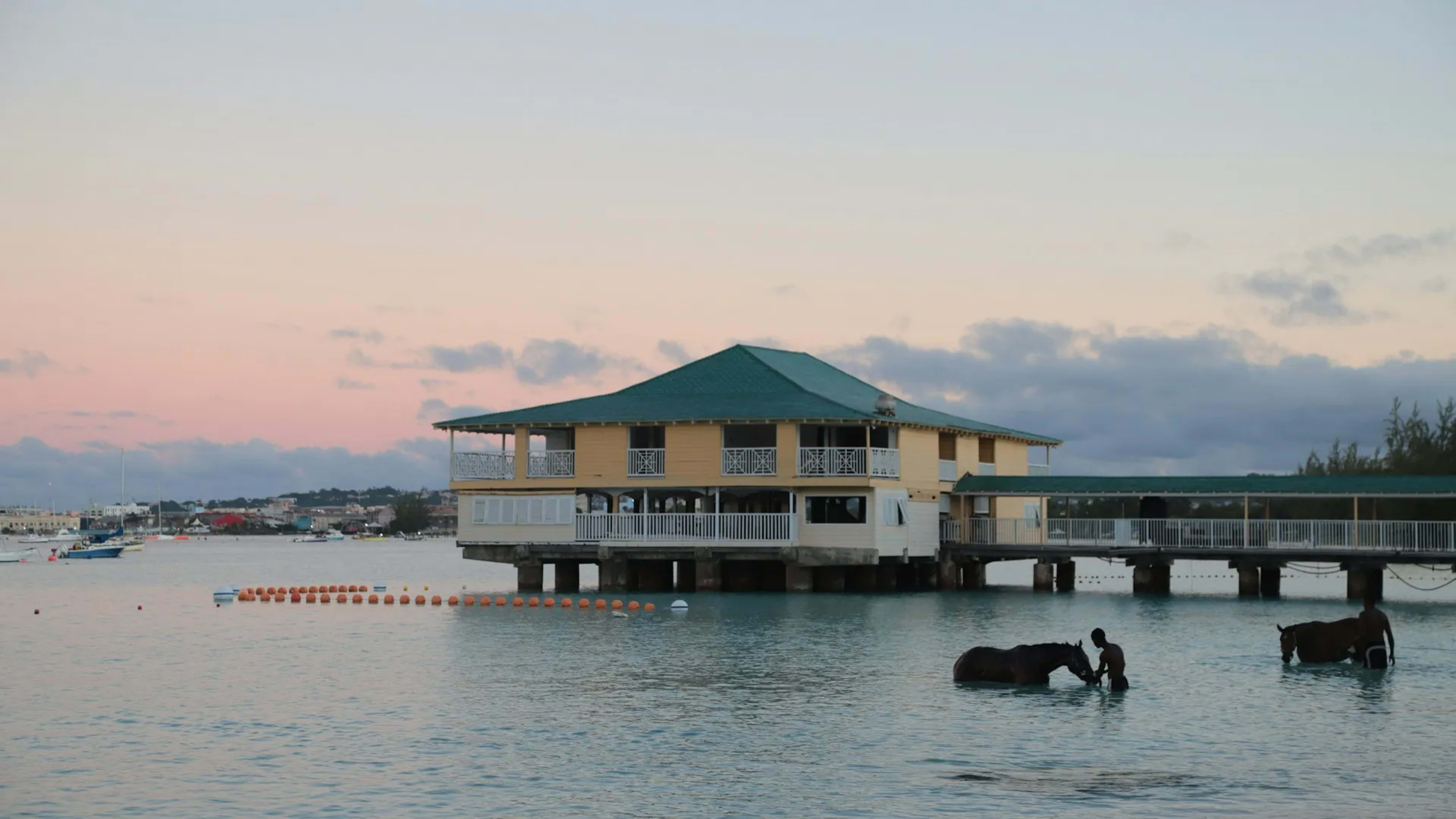Location & Transportation
When you dock in Aitutaki, the cruise ship will not tie up at a busy pier but will tender you ashore at the wharf in Arutanga. As you step off the tender, you might spot a large flat rock in the grassy area to your right – the Visitor’s Rock. Tradition says that stepping on this rock on arrival welcomes you into the village, and stepping on it as you depart lets you leave your cares behind.
Aitutaki is known for its rough approach with huge waves and crashing surf, so be prepared for a bumpy tender ride. Once ashore, local taxis, rental scooters, and bicycles (available at many hotels) are the best ways to get around this small island.
Sightseeing
Aitutaki is truly one of the world’s most exquisite lagoon destinations. Here are a few highlights to enjoy on your day ashore:
- The vast, turquoise lagoon stretches 12 km across the base and 15 km from top to bottom. In fact, you could easily fit Rarotonga within its boundaries.
- Explore the main island of Aitutaki by moped, bicycle, or on foot – the island features a pleasant coastal road, cross-island lanes, and bush tracks that meander through inland plantations.
- Discover local villages:
- Head to Arutanga Village on the west coast, the main settlement with a lovely white church, a charming wharf, a post office, supermarket, restaurant, and petrol station.
- Just north in the village of Ureia, admire colorful houses along the main road and a large playing field. Look out for outrigger canoes fishing in the lagoon.
- Visit Ootu Point on the southern tip, where you’ll find a gorgeous swimming beach with breathtaking views – it’s also the departure point for many day cruises.
Tours & Excursions
With only a day to soak up this southern paradise, an organized tour is a great idea. Some options include:
- Lagoon Tour: Join one of the many scheduled lagoon tours departing from near O’otu Beach around 10 am, returning by 3:30–4:00 pm. These tours, which cost about NZ$75, offer stops for snorkeling and a chance to see the island from the water.
- Boat Taxis & Fishing Charters: You can also hire a boat taxi directly at the tender pier. For those interested in fishing, several boats offer big-game fishing for marlin, tuna, wahoo, and mahi-mahi outside the reef or smaller reef fishing trips within the calm lagoon.
- Self-Guided Exploration: Rent a moped or bicycle from one of the local hotels to explore at your own pace. With well-maintained coastal and country roads, you can easily visit several local sites in one day.
It‘s a good idea to compare shore excursion costs between what your cruise line offers and options like Viator and GetYourGuide. They often provide lower prices and include customer reviews and ratings to help you choose the best option. They may also offer more more flexible cancellation or rescheduling policies than those available through your cruise line. However, while booking independently might give you more variety and potentially better rates, be mindful of your schedule - cruise line excursions are typically coordinated to match your ship‘s schedule with guaranteed pick-up and drop-off times.
There is also a great resource for finding local guides at Tours by Locals. Tours by Locals connects you with local guides who can help you plan a private personal tour, guide you, and get you back to your ship on time. You can also check out Rome2Rio for local transportation options. It is a great resource for finding how to get from one place to another, including public transportation, taxis, ferries, and more.
Shopping
While Aitutaki is a small island, you can still pick up unique local crafts and souvenirs:
- Local handicraft shops in Arutanga Village may offer handmade jewelry, carvings, and other art pieces.
- Small markets sometimes feature fresh produce, native artwork, and traditional Cook Islands crafts.
- Expect a relaxed shopping experience – it’s more about finding that special memento than large-scale retail therapy.
Dining
Aitutaki offers a taste of Cook Islands cuisine in a laid-back setting:
- Local restaurants and cafés serve fresh seafood, tropical fruits, and traditional dishes such as ika mata (a marinated raw fish salad).
- Enjoy a meal at one of the charming eateries in Arutanga Village or near the beach – dining here gives you the chance to mingle with locals and experience authentic island flavors.
- Many establishments emphasize fresh, local ingredients and simple, satisfying cooking.
Culture & Local Events
The local culture in Aitutaki is warm, welcoming, and steeped in tradition:
- The Visitor’s Rock isn’t just a landmark – it symbolizes the island’s deep-rooted traditions of welcoming and farewell.
- The local currency is the New Zealand Dollar (NZD), noted for its attractive and uniquely shaped coins and the rare Cook Island Three Dollar Note.
- Cultural events can pop up unexpectedly, from lively church gatherings to impromptu village music and dance performances. Depending on the time of year, you might even catch part of a festival celebrating Cook Islands heritage.
- Although Aitutaki is small, local businesses and community centers often post updated hours for shops, restaurants, and cultural events on notice boards. Be sure to ask a local for the latest happenings if you have a few extra hours to explore.
